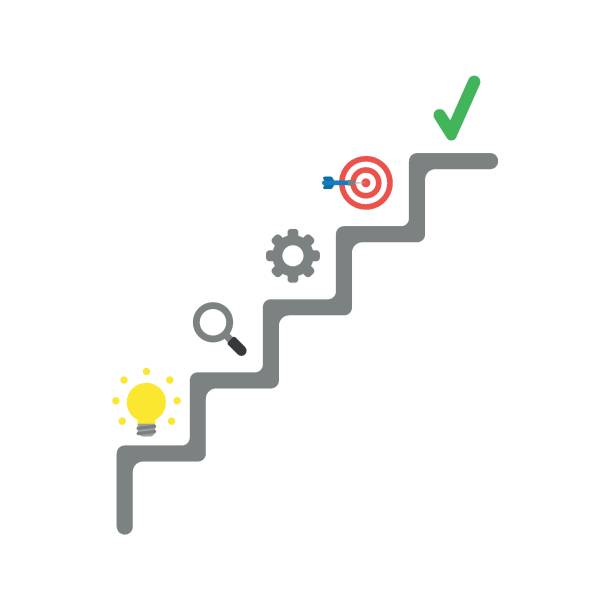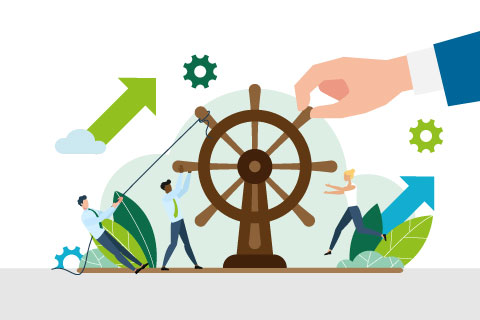
Timeless Principles for Navigating Change in a Dynamic World
Introduction
Opening Hook
The pace of change in today’s world is unprecedented. Consider this: the average lifespan of companies listed on the S&P 500 has plummeted from 61 years in 1958 to less than 20 years today. This startling statistic underscores how even the mightiest organizations struggle to keep up with the rapid evolution of technology, shifting consumer expectations, and global economic shifts. If corporations with vast resources face such volatility, individuals navigating personal and professional transitions face an even greater challenge.
Problem Statement
In a world characterized by constant flux, confusion and anxiety have become ubiquitous. The rise of artificial intelligence, unpredictable economic trends, and the erosion of traditional social structures leave many feeling untethered. Questions like “How do I prepare for the future?” and “What principles still hold true?” dominate personal and professional conversations. Without a framework to anchor decisions and expectations, people risk becoming overwhelmed, reactive, and directionless.
This whirlwind of uncertainty isn’t just a modern phenomenon—it reflects a core human challenge: adapting to change while maintaining stability and clarity. The key lies not in resisting change but in embracing enduring principles that provide guidance no matter the circumstances.
Purpose
This article seeks to illuminate these timeless principles. By leveraging lessons from human behavior, historical patterns, and practical wisdom, it offers actionable insights to navigate the complexities of today’s world. These principles are designed to enhance decision-making, foster happiness, and build resilience—empowering readers to thrive amid uncertainty.
Audience
The principles in this article are for everyone. Whether you’re a professional making strategic career moves, a student preparing for a rapidly evolving job market, or a leader tasked with guiding teams through uncertain times, these insights will resonate with your challenges and aspirations. Beyond professionals, anyone seeking clarity and a sense of control in a volatile world will find actionable value in these ideas.
In essence, this article is an invitation: step back, understand what remains constant amidst the chaos, and use these enduring truths to create a stable, fulfilling life.

Section 1: The Timeless Nature of Human Behavior
Subtopic 1.1: Consistency Across History
Key Insights
Human reactions to fundamental triggers like fear, risk, and reward have remained remarkably consistent throughout history. These reactions are deeply ingrained, shaped by millennia of survival instincts. Despite technological advancements and societal evolution, human behavior tends to follow predictable patterns when faced with uncertainty or opportunity:
- Stock Market Bubbles: The dot-com bubble of the late 1990s and the housing market bubble of the 2000s demonstrate collective euphoria during economic booms. People often overestimate growth potential, leading to inflated asset prices.
- Panic During Crises: Historical events like the Great Depression or the 2008 financial crisis show how fear can trigger mass sell-offs, hoarding, or withdrawal, exacerbating downturns.
- Optimism During Recovery: Following a crisis, collective optimism drives rebuilding efforts, economic resurgence, and innovation, as seen in the post-World War II economic boom.
Actionable Advice
Understanding these recurring patterns can provide clarity and strategic foresight:
- Study History: Familiarize yourself with historical trends in your field—be it finance, technology, or social movements. Recognizing parallels can help you anticipate outcomes and adapt strategies accordingly.
- Pause Before Reacting: When faced with widespread fear or exuberance, take a moment to assess whether your actions are influenced by emotions or facts.
- Diversify Risk: Prepare for uncertainty by spreading your investments, resources, or time commitments across various opportunities.
Subtopic 1.2: Empathy Through Shared Experiences
Key Insights
Empathy remains a cornerstone of effective collaboration and social harmony. Shared experiences, whether joyful or challenging, create opportunities to connect on a human level. This is particularly important in diverse, multicultural, and multigenerational contexts where understanding differences is key to fostering unity:
- Generational Influences: Baby Boomers, Millennials, and Gen Z each have distinct worldviews shaped by the socio-economic conditions of their formative years.
- Cultural Influences: Globalization brings together individuals from varied cultural backgrounds, requiring an understanding of differing values and communication styles.
Actionable Advice
- Practice Active Listening: In conversations, focus fully on the speaker, paraphrase their points to ensure understanding, and respond thoughtfully.
- Learn Cross-Cultural Communication: Invest time in understanding the cultural norms and values of people you frequently interact with, especially in international settings.
- Leverage Shared Goals: Find common ground to build rapport and foster teamwork. Shared objectives can transcend generational or cultural divides, creating a sense of unity.
Understanding the timeless nature of human behavior offers a foundation for navigating both personal and professional challenges. By learning from historical patterns and practicing empathy, we can build stronger relationships and make better decisions in an ever-changing world.

Section 2: Navigating Uncertainty with Resilience
Subtopic 2.1: The Limits of Prediction
Key Insights
The future remains inherently unpredictable despite the sophistication of data analytics and forecasting tools. Over-reliance on predictions often leads to complacency or misguided strategies when unforeseen events occur:
- Global Events: The COVID-19 pandemic disrupted economies, healthcare systems, and daily life worldwide, defying many experts’ expectations and forcing industries to adapt on the fly.
- Economic Fluctuations: Recessions, technological disruptions, and market crashes often arise from complex interplays of factors that evade even the most advanced predictive models.
- Human Behavior: The unpredictability of individual and collective choices frequently defies statistical norms, adding another layer of complexity to planning.
Actionable Advice
- Accept Uncertainty as Inevitable: Cultivate a mindset that views uncertainty not as a threat but as a natural part of life and decision-making.
- Build Adaptive Plans: Instead of rigid blueprints, create flexible strategies that allow for pivots when circumstances change. For instance, develop financial buffers or scalable business models.
- Scenario Planning: Regularly engage in scenario planning to prepare for multiple outcomes, from best-case to worst-case scenarios. This approach helps mitigate risks and identify opportunities regardless of the situation.
Subtopic 2.2: The Power of Flexibility
Key Insights
Flexibility is a critical trait for individuals and organizations to thrive in volatile environments. Those who adapt quickly can seize opportunities and mitigate risks more effectively:
- Organizational Adaptability: Companies like Zoom, which scaled their infrastructure rapidly to meet pandemic-driven demand, exemplify the advantages of flexibility.
- Personal Growth: Individuals who embrace new technologies or reskill to meet changing job market demands stay relevant and resilient.
- Crisis Response: During the early days of the pandemic, businesses that pivoted to remote work or leveraged digital platforms preserved operations and even grew, while others floundered.
Actionable Advice
- Develop a Growth Mindset: View challenges as opportunities to learn and grow. Embrace feedback and see failures as stepping stones for improvement.
- Invest in Skills and Tools: Continuously update your skills to stay ahead of trends. For organizations, adopting flexible technologies and training programs ensures long-term relevance.
- Reframe Change as Positive: Cultivate an attitude that views change as a way to innovate and progress rather than as a disruption. Celebrate small wins to reinforce this perspective.
Summary
Resilience in the face of uncertainty comes from recognizing the limits of prediction and cultivating flexibility. By accepting the unpredictability of life, preparing for diverse scenarios, and embracing adaptability, both individuals and organizations can navigate volatility with confidence and strength.

Section 3: Managing Happiness Through Expectations
Subtopic 3.1: Avoiding the Comparison Trap
Key Insights
The prevalence of social media has intensified the human tendency to compare ourselves to others. With curated images of success, wealth, and happiness dominating online spaces, it is easy to feel inadequate:
- Unrealistic Benchmarks: Platforms like Instagram and LinkedIn often showcase highlights of people’s lives, creating the illusion of constant success and joy, which can be detrimental to self-esteem.
- Perpetual Dissatisfaction: Measuring personal progress against external standards rather than intrinsic goals leads to a cycle of frustration and envy.
Actionable Advice
- Set Personal Milestones: Define what success and happiness mean to you, independent of societal or peer expectations. Focus on achieving those milestones.
- Practice Gratitude: Regularly reflect on the positive aspects of your life through journaling or mindfulness exercises. Gratitude shifts attention from what you lack to what you have.
- Limit Social Media Use: Take breaks from social media or curate your feeds to focus on content that uplifts and inspires rather than triggers self-comparison.
Subtopic 3.2: The Joy of Simplicity
Key Insights
Happiness is often found not in acquiring more but in desiring less. By simplifying wants and aligning expectations with reality, individuals can experience greater contentment:
- Desire-Expectation Gap: The gap between what we desire and what we achieve significantly impacts happiness. Managing this gap by recalibrating expectations leads to more sustainable joy.
- Value of Simplicity: Minimalist living and prioritizing meaningful over material pursuits reduce stress and enhance well-being.
Actionable Advice
- Set Realistic Goals: Break larger aspirations into smaller, achievable objectives. Celebrate progress at every step to maintain motivation and satisfaction.
- Reflect on Accomplishments: Regularly evaluate what you’ve achieved rather than fixating on what remains undone. This practice fosters a sense of fulfillment.
- Declutter Desires: Periodically assess what truly matters to you. Reduce unnecessary pursuits or possessions that don’t contribute to your well-being.
Summary
Happiness is as much about managing expectations as it is about achieving goals. By avoiding toxic comparisons and embracing simplicity, individuals can foster a mindset rooted in gratitude and self-satisfaction. Focusing inward, rather than outward, paves the way for a more balanced and fulfilling life.

Section 4: Building Financial and Emotional Resilience
Subtopic 4.1: Navigating Economic Cycles
Key Insights
Economic cycles—periods of expansion followed by contraction—are an unavoidable reality of financial systems. Understanding their inevitability and recognizing patterns is essential for navigating both personal finances and professional investments:
- Historical Examples: The dot-com bubble of the early 2000s and the 2008 financial crisis highlight recurring economic phenomena driven by exuberance, overleveraging, and eventual correction.
- Repetition in Cycles: Booms foster optimism and excessive risk-taking, while busts instill caution and conservatism, often resulting in exaggerated market movements.
Actionable Advice
- Save During Booms: Build financial reserves when the economy is thriving to prepare for inevitable downturns. This practice ensures liquidity during crises.
- Invest Cautiously: Avoid getting swept up in the euphoria of speculative trends. Stick to investments with solid fundamentals, and diversify your portfolio to spread risk.
- Plan for Downturns: Create contingency plans for personal and professional finances. For instance, maintain an emergency fund or establish a business strategy that allows for operational flexibility during slowdowns.
Subtopic 4.2: Accepting the Role of Luck and Risk
Key Insights
Success and failure are influenced by a combination of preparation, effort, and uncontrollable external factors such as timing, market conditions, and random events. Recognizing this interplay fosters resilience and perspective:
- Role of Luck: Fortunate circumstances—being in the right place at the right time—often contribute significantly to success, though they are rarely acknowledged.
- Risk’s Dual Nature: Risk can lead to significant rewards but also carries the potential for failure, making balance and humility essential.
Actionable Advice
- Stay Humble in Success: Acknowledge the external factors and support systems that contributed to your achievements. This mindset fosters gratitude and prevents overconfidence.
- Maintain Perspective in Failure: Accept setbacks as part of the learning process. Reflect on what went wrong and use those lessons to build better strategies for the future.
- Balance Risk and Safety: Take calculated risks while maintaining a safety net. For example, pursue ambitious projects but ensure you have backup plans to mitigate potential losses.
Summary
Financial and emotional resilience stems from understanding economic patterns and embracing the uncertainty of life. By saving and investing prudently, acknowledging the role of luck, and balancing risk with preparation, individuals and organizations can navigate fluctuations with confidence and poise.

Section 5: Harnessing the Power of Storytelling
Subtopic 5.1: Stories Over Data
Key Insights
Humans are inherently drawn to narratives because they evoke emotion, create relatability, and simplify complex ideas. While data can inform, stories inspire and persuade:
- Resonance of Narratives: Movements such as climate change activism often succeed in garnering public attention not through statistics alone but through compelling personal stories of affected individuals or communities.
- Memory and Engagement: Stories are more memorable than raw data because they create mental images and evoke emotions, leaving a lasting impression.
Actionable Advice
- Integrate Narratives into Communication: Whenever presenting data or making a case, pair it with a relevant story that highlights its impact. For example, when discussing renewable energy, share the journey of a community transformed by solar power.
- Leverage Universal Themes: Draw on themes like triumph over adversity, shared values, or aspirations to connect with audiences on a deeper level.
- Visualize and Personalize: Use imagery, metaphors, and real-life examples to make stories vivid and relatable, ensuring they resonate with diverse audiences.
Subtopic 5.2: Ethical Storytelling
Key Insights
While stories are powerful tools, they come with responsibility. Misleading narratives can damage trust and credibility, potentially causing harm to individuals or groups:
- Consequences of Manipulation: False or exaggerated stories, while effective in the short term, can erode trust when exposed, undermining the storyteller’s authority.
- Authenticity as a Value: Genuine, accurate stories build long-term relationships and loyalty, fostering credibility and respect.
Actionable Advice
- Prioritize Accuracy: Fact-check stories before sharing, ensuring they align with the truth and avoid sensationalism.
- Respect the Subjects: If telling someone else’s story, obtain permission and represent their experiences faithfully.
- Transparency in Intent: Be clear about the purpose of the story—whether to educate, inspire, or advocate—avoiding manipulation or hidden agendas.
Summary
Storytelling is a transformative tool that transcends data, influencing hearts and minds. By combining compelling narratives with ethical integrity, individuals and organizations can inspire action, build trust, and foster meaningful connections. Harnessing the art of storytelling responsibly not only amplifies messages but also strengthens the credibility of the messenger.

Section 6: The Case for Long-term Thinking
Subtopic 6.1: The Power of Incremental Progress
Key Insights
Sustained success often comes from small, consistent actions rather than dramatic changes. The power of incremental progress lies in its ability to compound over time, turning seemingly minor efforts into significant achievements:
- Compounding Growth: Just as small daily savings can accumulate into a substantial fortune over years, consistent efforts in any area of life—whether career, health, or personal development—can lead to transformative outcomes.
- Psychological Benefits: Achieving small, manageable goals provides a sense of accomplishment and builds momentum, which fosters continued effort and improvement.
Actionable Advice
- Focus on Daily Habits: Build small, sustainable habits that contribute to your long-term goals. For example, commit to writing 500 words a day if your goal is to finish a book.
- Create Systems, Not Just Goals: Systems are processes that make achieving long-term success easier. Develop processes (e.g., morning routines, regular training) that encourage continual improvement.
- Track Progress: Regularly measure small wins and reflect on progress. Celebrate the micro-victories to stay motivated, while understanding that they contribute to larger, long-term results.
Subtopic 6.2: Patience as a Strategy
Key Insights
In a world driven by instant gratification, patience is a rare but powerful asset. Delayed gratification is not only a key to personal development but also a strategic advantage in business and investment:
- Delayed Gratification: The ability to delay short-term rewards for long-term benefits is a hallmark of successful individuals and organizations. Consider how investing in education or career development today reaps rewards years down the line.
- Competitive Advantage: Patience can also be a competitive advantage in business. Companies that take the time to develop their products thoroughly, rather than rushing to market, often outperform those that prioritize speed over quality.
Actionable Advice
- Practice Thoughtful Decision-Making: Before acting on impulses, take a step back to evaluate long-term consequences. Whether in financial decisions, career moves, or personal choices, ask: “How will this impact me in five or ten years?”
- Cultivate Emotional Control: Avoid the pressure to make quick decisions driven by short-term desires or fear. Mindfulness and emotional regulation techniques, such as meditation or deep breathing, can help maintain composure.
- Invest in Long-Term Relationships: Prioritize relationships and networks that offer value over time. Trust, collaboration, and loyalty require patience to build but provide significant rewards in the long run.
Summary
Long-term thinking is essential for sustained success in both personal and professional domains. By embracing incremental progress and practicing patience, individuals and organizations can make decisions today that will yield benefits far into the future. Consistency in action and a willingness to delay gratification create a solid foundation for lasting achievements.

Conclusion
Summary of Key Insights
Navigating the complexities of the modern world requires a blend of timeless principles that draw on human behavior and historical patterns. These principles provide stability amid rapid societal and technological changes:
- Human Behavior: Despite the whirlwind of change, human reactions to fear, risk, and reward have remained largely unchanged. By understanding these constants, we can better predict and respond to challenges.
- Resilience and Adaptability: In an unpredictable world, the ability to adapt and plan for uncertainty is crucial. Building resilience—both financial and emotional—helps us thrive even when facing setbacks.
- Long-term Thinking: Focusing on incremental progress, exercising patience, and making decisions with the long term in mind ensures sustained success and personal fulfillment.
Final Call to Action
As we move forward, it is essential to apply these principles in our daily lives:
- Resilience in Practice: Embrace change, stay adaptable, and plan thoughtfully for the future.
- Support Empowering Initiatives: Join and support organizations like the MEDA Foundation, which work towards fostering self-sufficiency, adaptability, and empowerment in communities. Such initiatives help individuals and groups build the resilience needed to navigate challenges, particularly for those who face unique difficulties, such as individuals on the autism spectrum.
- Be Part of the Solution: By contributing to initiatives that focus on building sustainable ecosystems and employment opportunities, we can help create a more resilient and compassionate society.
Book References:
- “The Psychology of Human Misjudgment” by Charlie Munger
This work offers a compelling look at how human behavior and decision-making often follow predictable patterns. Munger’s exploration of cognitive biases can enhance our understanding of consistent human reactions to fear, risk, and reward, crucial for navigating uncertainty. - “Antifragile: Things That Gain from Disorder” by Nassim Nicholas Taleb
Taleb’s book emphasizes the importance of resilience and adaptability. It suggests that systems, individuals, and organizations that embrace volatility and uncertainty can grow stronger from challenges—an invaluable perspective for building emotional and financial resilience. - “Atomic Habits: An Easy & Proven Way to Build Good Habits & Break Bad Ones” by James Clear
A great resource for those looking to implement incremental progress in their lives. Clear’s principles around building small habits and systems align well with long-term thinking and steady, sustainable success. - “The Power of Patience: How to Wait for What You Want” by M.J. Ryan
This book dives into the practice of delayed gratification, offering actionable advice for cultivating patience, a key strategy for long-term personal and professional success. - “Start with Why: How Great Leaders Inspire Everyone to Take Action” by Simon Sinek
Sinek’s work explores the importance of purpose and long-term vision in leadership and decision-making. It reinforces the power of patience and consistency in aligning actions with broader goals.
In a world that constantly evolves, timeless principles provide a steady beacon of clarity. They offer the wisdom and confidence we need to face challenges, make informed decisions, and navigate uncertainty with grace and strength. Embrace these principles today, and let them guide you toward a more grounded and resilient future.









